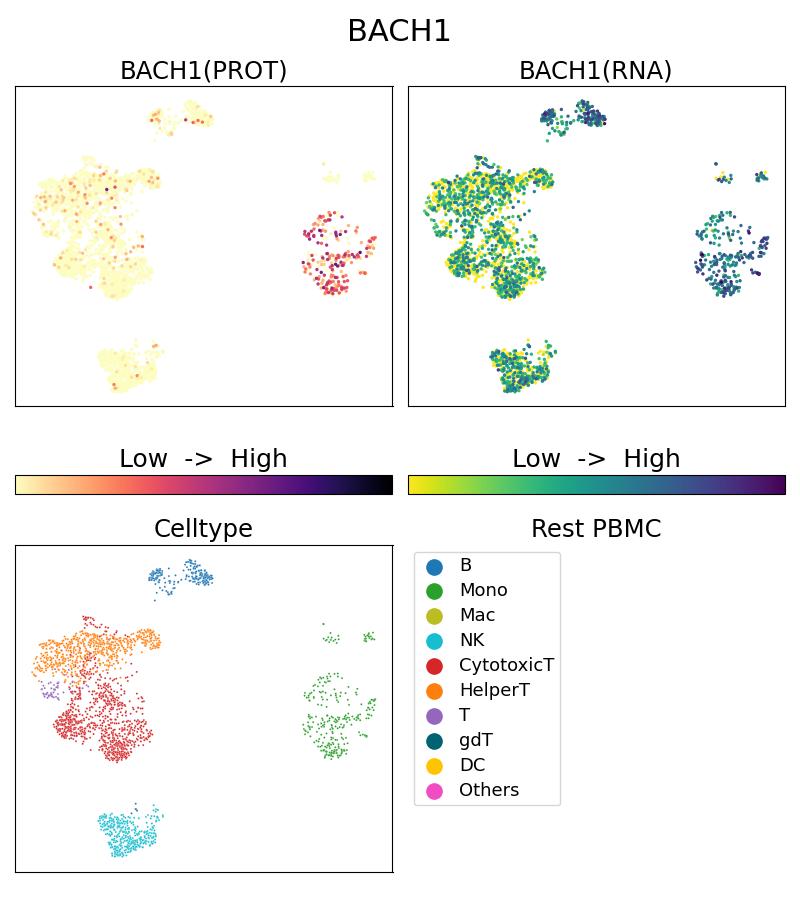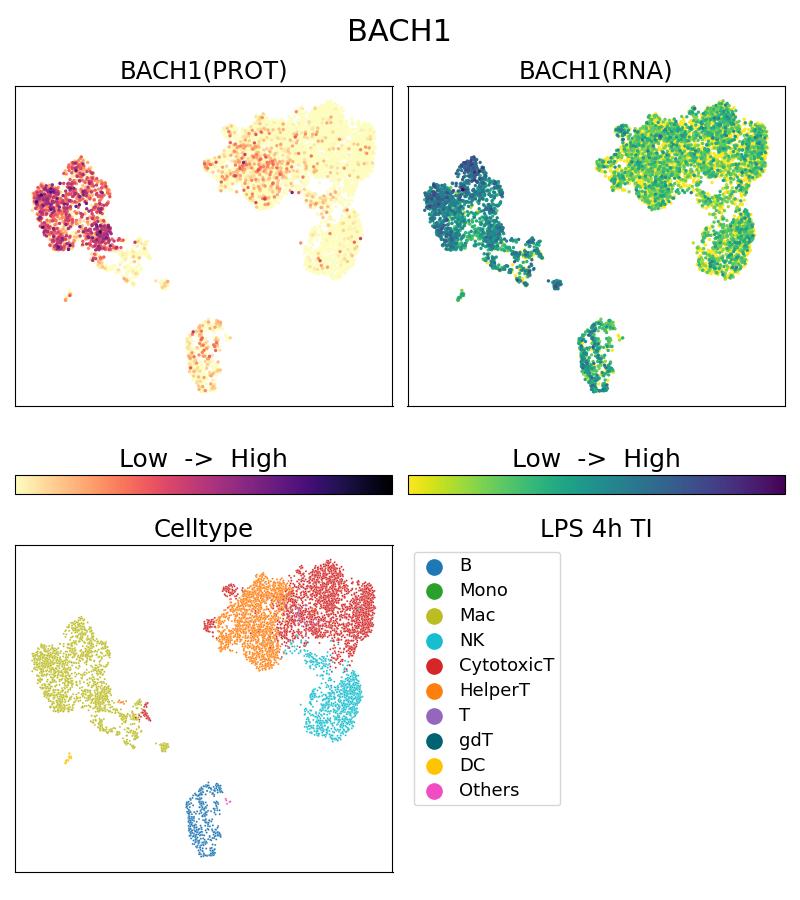Validation Data Gallery
Tested Applications
| Positive Single Cell (Intra) detected in | 10x Genomics Gene Expression Flex with Feature Barcodes and Multiplexing product. |
Recommended dilution
| Application | Dilution |
|---|---|
| SINGLE CELL (INTRA) | <0.5ug/test |
| It is recommended that this reagent should be titrated in each testing system to obtain optimal results. | |
Product Information
G66762-1-5C targets BACH1 in Single Cell (Intra) applications and shows reactivity with Human samples.
| Tested Reactivity | Human |
| Host / Isotype | Mouse / IgG1 |
| Class | Oligo Conjugate |
| Type | Monoclonal |
| Immunogen | BACH1 fusion protein Ag6011 相同性解析による交差性が予測される生物種 |
| Full Name | MultiPro® 5CFLX Anti-Human BACH1 (2D12A4) |
| Calculated molecular weight | 82 kDa |
| GenBank accession number | BC063307 |
| Gene Symbol | BACH1 |
| Gene ID (NCBI) | 571 |
| ENSEMBL Gene ID | ENSG00000156273 |
| RRID | AB_3673961 |
| Conjugate | 5CFLX |
| Full Oligo Sequence | CGGAGATGTGTATAAGAGACAGGCCATCACGGCACGTCCCATATAAGAAA |
| Barcode Sequence | GCCATCACGGCACGT |
| Form | Liquid |
| UNIPROT ID | O14867 |
| Storage Buffer | PBS with 1mM EDTA and 0.09% sodium azide {{ptg:BufferTemp}}7.3 |
| Storage Conditions | 2-8°C Stable for one year after shipment. |
Background Information
BTB and CNC homology 1, basic leucine zipper transcription factor 1(BACH1) is a heme-regulated transcriptional regulator that acts as a repressor or activator and a member of the AP-a superfamily. MafK belongs to the small Maf family that can function as transcriptional activators or repressors depending on the proteins with which they form heterodimers. BACH1 has crucial roles in both stress responses and transformation by H-RasV12. The molecular weight of expected mobility Bach1 is 100-110 kDa.
Protocols
| MultiPro™ Cell Surface and Intracellular Staining Protocol | Download protocol |
| 10x Genomics Cell Surface Protein Only Staining Protocol | Download protocol |

